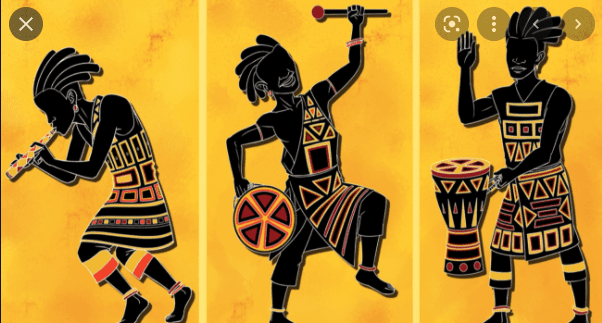The Musical Aspect within African and African American Cultures and its Communities!

The role of Music within African and African-American societies throughout history has proved to be highly significant within all aspects of communal living. African Music has evolved through the consistent practices amongst various communities, developing a cultural significance that forged decades of traditions and individualism within African and African-American societies.
The Role of Music In Early Years
Music has had a significant impact within African societies throughout time, regarding its entertainment value and utilitarian functions and its appraisal within society. African Kings throughout the 1000’s would place a large ensemble of Musical Professionals within their royal circle, allowing a community to reflect and yearn for great wealth and royal status. Such Musical Professionals would play the Deba Drum when welcoming the King into a ceremony or social events. Music within that period of time was looked upon as great talent and virtue to have; not many community members adopted the skills and understanding of Music. Now music within African-American societies differed from the traditional value and status in contrast to its role in Africa. When first enslaved by White Americans within the seventeenth century, West and Central Africans were forced to bring their musical instruments with them when travelling through the commonly known terrors of the Middle Passage. White Americans would make the African passengers dance and sing for them as an activity of “exercise.”, thus beginning the mockery and lack of respect in regards to African culture within White America. Once upon entering the United States, traditional African music was molded to the confines and respect to both West and Central African cultures. Both societies contributed significant factors within their culture to execute music that was pleasurable for all; they would sing or play music at various social gatherings and ceremonial events that provided enjoyment. But as time progressed, music became an activity practiced when working or just when one was simply “bored”. Though White Americans had taken the privileges of playing loud instruments, claiming they posed a threat to the system of slavery because it could be used as a means of communication to create slave revolts, enslaved African-Americans would sing songs when completing daily duties, developing a commonly used musical structure called “Call and Response.” The lead vocalist during the song would say something, the responders would repeat a recurring statement related to what they said. Not only did music play a significant role within working duties, but it was an impact on African-American children’s mental development. They would learn songs that involved counting and using physical movement to practice social skills.
The Musical Creation and Delivery
Both African and African-American societies prioritized the impact and delivery of Timbre, or in other words, the sound of their music. Timbre served to be a primary element in the production aspect when performing at social gatherings, ceremonial events, rituals, etc. The musical sound component could be altered transformed through various minor tweaks within the overall performance when performing with different instruments African-Americans would produce a wide range of vocally inspired Timbres using sound-altering devices. African-American were often criticized for their musical taste, receiving labels of their music to be “wild,” “strange,” “peculiar.”, but many of these critics served to be within a culture that did not share the same traditions and musical outlook; their judgments being a means of ignorance to a culture they failed to understand. African-American executed their music in a way that would promote beneficial social engagement. Unlike White Americans, they sought to have their music felt in a way that enabled their audience to be physically active with one another. African-Americans encourage this idea of musical unification amongst their people, finding their emotional expression to be most enjoyable.

